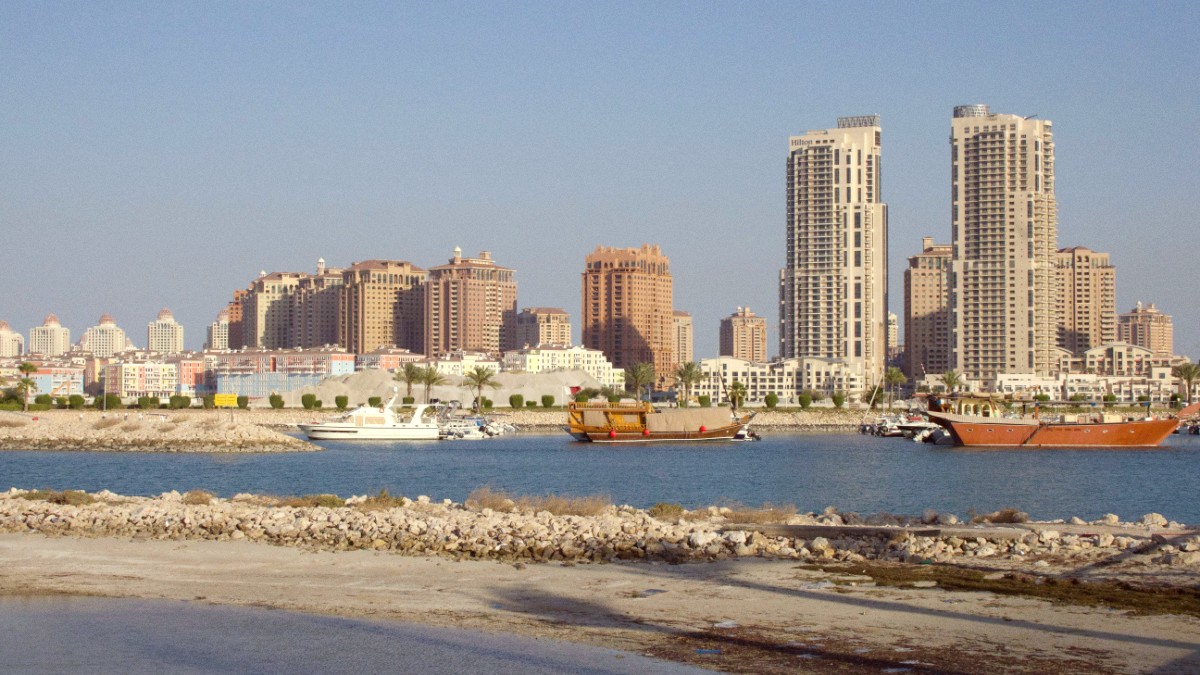
Qatar
Qatari cuisine draws from the broader Middle East, Levant, India, and North Africa. It emphasizes seafood, rice, and various meats, seasoned with aromatic spices.
Common ingredients include basmati rice, dates, seafood (hamour, kingfish), lamb, chicken, and sometimes camel. Spices like cardamom, saffron, cinnamon, and dried lime (loomi) are characteristic.
Lebanese, Syrian, Turkish, Egyptian, Indian, Pakistani, Filipino, Nepalese cuisines are widespread.
Italian, French, British, Thai, Chinese, Japanese dining options are readily available.
Various fast food and casual dining chains are found across the city.
Qatar's national dish. Aromatic rice cooked with tender meat (lamb, chicken, or fish), seasoned with dried lime, cardamom, saffron, and cinnamon.
Find at: Al Jasra Traditional Qatari Restaurant or Shay Al Shamoos in Souq Waqif.
A hearty stew of vegetables and meat (typically lamb or chicken), served over thin layers of regag (flatbread) that soak up the rich broth.
Find at: Traditional Qatari restaurants.
A thick, porridge-like dish made from cracked wheat and meat (chicken or lamb), slow-cooked into a smooth, creamy consistency, often seasoned with cinnamon.
Find at: Some traditional Qatari restaurants, especially during cultural events or Ramadan.
A strong, sweet milk tea brewed with cardamom, a cultural staple available everywhere.
Light, bitter coffee flavored with cardamom, served without sugar, a symbol of hospitality.
Doha's luxury hotels host numerous world-class fine dining restaurants.
A wide array of casual dining options exist in Doha.
Doha's street food has quick, flavorful, and budget-friendly options.
Indian, Pakistani, Filipino, Nepalese restaurants are abundant and popular, with authentic flavors.
Find biryani, curries, and regional specialties.
Italian, French, Thai, Chinese, and Japanese restaurants are available.
Sushi bars, fine European dining, and casual Asian eateries.
Various small eateries, cafes, shisha lounges.
Seasonal fresh produce, artisanal foods, food stalls.
Occasionally hosts food trucks and pop-up eateries.
Extensive international food selection.
Awareness is growing, especially in upscale restaurants. Communicate needs clearly.
Rice-based dishes are generally a safe choice.
Always inform staff about allergies. Carrying a Translation card in Arabic helps communication.
For severe allergies, serviced apartments with cooking facilities are an option.
Alcohol consumption is restricted due to Islamic laws. It is available only in licensed hotel bars, restaurants, and clubs.
Visitors should respect these regulations. Consume alcohol only in designated areas.
Enjoy traditional Qatari or international cuisine on a renovated wooden dhow boat while cruising Doha Bay.
Many luxury hotels feature spectacular rooftop restaurants and lounges.
Small eateries, cafes, and shisha lounges within the traditional market.
Many luxury hotels offer exclusive private dining experiences and themed nights.
Ideal for celebrations or special evenings.
During Ramadan, many hotels and restaurants host grand Iftar and Suhoor buffets.
A significant cultural and culinary experience.
Opportunities to learn Qatari cooking at cultural centers or select hotels.
Torba Farmers Market offers direct access to local produce and artisanal foods.
Casual Arabic language exchanges sometimes pair with food experiences.
For fine dining establishments, making reservations well in advance is highly advisable, especially for weekend evenings or popular times.